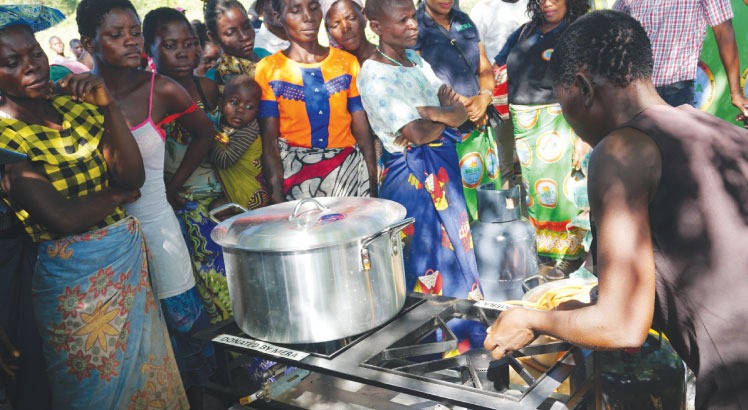Push for gas use facing hitches
The Malawi Government’s push to increase the uptake of gas is slowly yielding results, but not at desirable levels, industry players have said.
In 2020, Malawi Energy Regulatory Authority (Mera) started the implementation of the liquified petroleum gas (LPG) guidelines to, among others, address issues of prices of gas cylinders as well as levies.
The implementation came a year after Treasury announced the removal of value added tax on LPG and gas cylinders.
In a fresh bid, Treasury, in the current financial year also removed import duty on gas equipment such as cookers and hotplates.
During the review period, Mera figures show that Malawi has seen its gas sales double from 1.1 million kilogrammes (kg) in 2020 to 2.3 million kg at the end of 2022.

Speaking in an interview on Tuesday, Mera consumer affairs and public relations manager Fitina Khonje said the regulator expects to see increased usage of gas following increased competition and interventions from various players.
She said: “We expect to see continued growth of the LPG sector, especially now that there are more LPG marketing companies.
“The competition among these companies as well as collective efforts by various players in the sector, including government, non-governmental agencies and licencees, will help boost LPG uptake.”
Presently, the sector has about seven licencees.
However, despite the increased competition and rising demand for gas, the country’s uptake of gas remains low, with published data showing consumption at about 1 560 metric tonnes per year.
Meanwhile, as at 2021, gas consumption for regional counterparts such as Tanzania, Rwanda and Zambia far outpaced Malawi at 248 800 MT, 32 933 MT, 7 981MT in that order.
In an interview on Tuesday, gas supply chain expert Mac Adams Mbewe said while the usage of gas in the country has increased, more needs to be done to increase and stabilise supply.
He said: “There are so many combined factors affecting gas uptake, including negative perception, supply limitations to urban areas, affordability of gas cylinders.
He said: “Let us sensitise the consumers to the risks and benefits of using gas.
“We also need to put incentives to firms to increase accessibility beyond the urban area and also look at ways of how we can further subsidise the cylinder, which can stay up to 30 years with proper service.”
But Delta Energy and Gas Limited general manager Muhammed Lunat said while the gas usage and public perception are yielding positive results, the challenging economic environment, particularly forex, is affecting players in the sector.
He said: “We should also appreciate what the government is doing the best possible to promote the gas industry by removing value added tax [VAT] on gas, removing VAT and duties on cylinders and currently removing duty on some appliances.
“Collectively there is more room to improve the industry and moving forward we hope our economy recovers in time so that we all move in the right direction.”
On the otherhand, Consumers Association of Malawi executive director John Kapito said the interventions are not addressing the challenges of the intended beneficiaries, thereby threatening uptake levels.
“While we appreciate the various interventions by government to create demand for gas, there is need to underline the key challenges that affect demand for usage of gas,” he said.
On average, a three kg cylinder with three kg gas costs K30 000 while a six kg cylinder filled with six kg gas costs between K72 000 and K100 000.
LPG known in some countries as propane, butane, bottled gas or cooking gas, is a clean-burning and efficient cooking fuel used by almost three billion people. It has long been an inspirational fuel choice for many urban and rural poor.
The 2018 National Energy Policy confirms several barriers to increase usage which is mainly due to high cost.
The policy looks at ways of doing away with barriers to lower pricing and increased uptake of LPG in the country.





